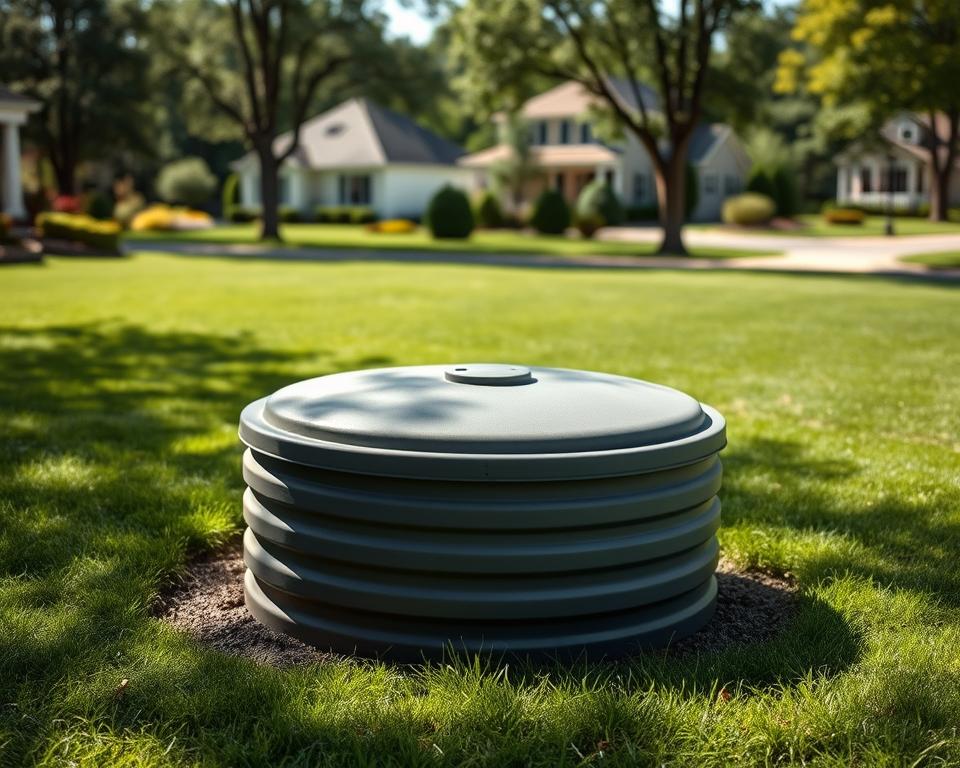Replacing a Septic Tank Pump: A Complete Guide
Ever wondered about the fallout of a Septic Tank Pump breakdown? For many, it’s a situation that brings considerable distress and unforeseen financial hits. Identifying the need for immediate replacement is vital in ensuring a functional and clean Septic system. By scheduling routine system checks, including swift repair needs, you increase your system’s life while preventing costly emergencies. Companies like All in Sanitation perform a key duty in helping keep your Septic tank working efficiently. This guide seeks to give a comprehensive understanding of Septic Tank Pump replacement, including warning signs and upkeep suggestions for septic tank pumping prices.
Primary Points
- Understanding the role of a Septic Tank Pump is crucial for homeowners.
- On-time Septic Tank Pump replacement can reduce long-term expenses.
- Scheduled maintenance and cleaning are key to extending the lifespan of your Septic system.
- Qualified service can competently oversee Septic system Pump repair and maintenance.
- Detecting initial symptoms of Pump failure can avoid high repair bills.
Knowing Your Septic System
A Septic system is vital for homes without access to public sewers. It processes and removes household wastewater safely. The Septic tank is integral to this system’s performance, holding a pivotal position in the process.
The Septic tank takes in sewage, dividing solids from liquids and scum. This split is vital for efficient wastewater treatment. The clarified water then flows to the drain field, where it undergoes further filtration by the soil, preserving groundwater.
Grasping how your Septic system works can improve its life and efficiency. Regular upkeep is important for the Septic tank and the system’s overall well-being. Homeowners must familiarize themselves with their system’s specifics to avoid environmental damage and prevent pricey renovation.
Septic Tank Basics
A Septic tank is a in-ground, watertight container critical for household waste management systems. It’s important to know the Septic tank’s main purpose: it manages sewage waste storage by conditioning it. This setup works by distinguishing solids from liquids, promoting basic wastewater treatment and sanitation.
Its operation depends on naturally occurring microorganisms that break down waste. In areas without centralized sewage treatment, Septic tanks are irreplaceable. They keep sewage long enough for solids to sink, forming sludge. Meanwhile, liquid effluent floats upward, making way for filtration in the drainage field.
Preserving a Septic tank in optimal state is essential for its efficiency and longevity. Consistent servicing is necessary to avoiding problems like backups and overflows. These incidents can result in high bills and pose dangers to nature. In essence, Septic tanks play a significant role in upholding sanitation and safety, especially in rural areas.

Warning Signs of Pump Failure
Homeowners should be mindful of signs that their Septic tank may need a new Pump. A strong sign is experiencing foul odors by drains or in the garden, pointing to a system failure. Facing repeated or serious sewage backups in your home demands urgent action to prevent worse issues.
Seeing slow draining drains signals a potential problem. Fixtures like sinks, showers, or toilets that clear slowly might signal a Pump failure or a clog that needs an expert’s evaluation. Additionally, spots of unusually lush vegetation in your yard could mean trouble; this reveals waste leakage, leading to overflow concerns.
To ward off large, pricey repairs, homeowners should deal with these signs swiftly. Carrying out routine checks and maintenance is key for the Septic system’s top function.
| Signs | Description |
|---|---|
| Foul Odors | Unpleasant smells around drains or yard pointing to system failure. |
| Sewage Backup | Recurring overflows in sinks or toilets suggesting potential Pump issues. |
| Slow Draining Drains | Fixtures draining slowly can point to blockages or Pump malfunction. |
| Lush Vegetation | Areas of dense greenery near the tank suggesting possible overflow. |
How Often Should You Replace Your Septic Pump?
Appreciating the interval for replacing your Septic Pump is key for a well-functioning Septic system. It’s sensible to have your system assessed every three years. A certified technician during these visits delivers insights into how well your system performs.
Generally, cleaning the Septic tank becomes required every five years. However, households with high demand or a larger number of occupants might need annual service. Correct upkeep of your Septic system wards off costly repairs and extends its lifespan. Specialists in Septic services can develop a maintenance plan that fits your household load and the details of your system.
Keeping on top with Septic Pump replacements secures your system’s smooth running and defends your home investment. Consistent checks and care dodge surprise expenses. They maintain seamless system operation.
Pump Replacement Pricing
The Septic Pump replacement cost fluctuates, dependent on many elements. Homeowners should prepare to pay spending between $500 to $1,300 for a new Pump. This price spectrum covers differences in the style of Pump and material needs. It’s important to factor in the Pump and Septic tank servicing costs for the installation and required inspections.
Costs can also rise due to issues within the Septic system or regional labor rates. Essential repairs, prompted by wear or harm, could boost the total outlay. In assessing financial estimates for Septic services, include charges for scheduled service, assessments, and any unforeseen emergencies since these factors critically aid in maintaining your system’s longevity.
Allocating funds for routine Septic service diminishes the impact of unforeseen costs. Proactive budgeting supports property owners in efficiently handling expenses related to the Pump’s replacement and system upkeep.
How Pump Replacement Works
The Septic Tank Pump replacement begins with a comprehensive inspection of the system. This opening check finds any additional issues aside from the Pump itself. The old Pump is then extracted properly and swiftly.
Installing the new Pump entails precise attention to securing connections, making sure no leaks. Expert crews see that the installation is accurately completed, lowering future issues.
The last step is a comprehensive wrap-up review. It confirms proper functioning, offering homeowners peace of mind. With qualified aid, the process is straightforward, bringing limited interruption.
Pump Installation Guidelines
When undertaking Septic Pump installation, it’s important to follow best practices. Engaging experienced experts confirms compliance with local regulations. They skillfully handle the installation details, avoiding errors common in inexperienced setups.
Adhering to stringent Septic service standards is central for smooth system flow. Selecting appropriate components and durable materials increases the Pump’s life and improves the Septic system’s efficiency. This meticulous attention improves maintenance and overall performance longevity.
- Select a reliable service provider who focuses in Septic systems.
- Confirm that all necessary permits and inspections are in place before work begins.
- Select Pumps that suit the specific requirements of your Septic system.
- Schedule a pre-installation inspection to evaluate site conditions.
- Pay attention to the layout and flow of the Septic system during installation.
Following these guidelines creates a hassle-free fit-out. It also delivers a reliable system for proper sewage treatment.
Caring for Your Septic System
Avoiding costly problems with your Septic system begins with periodic upkeep. By using straightforward guidelines, homeowners can maintain their Septic systems’ efficiency. Setting up routine inspections is a smart move. It spots and address problems before they become severe.
It’s also necessary to stop flushing harmful materials down the drain. Fat, chemicals, and items that don’t break down can impair your system. Cutting water use during heavy-demand hours can also help the Septic system cope better.
Arranging specialist cleanings with entities like All in Sanitation is crucial for Septic health. Learning what you can and cannot do with your Septic tank can materially prolong its lifespan and shield your household environment.
Cleaning Your Septic Tank
Periodic Septic tank cleaning is important for your system’s extended function and efficiency. The process includes removing sludge, checking for damages, and ensuring everything functions correctly. These steps are essential to maintain smooth operation and ward off expensive fixes.
A detailed Septic maintenance plan should feature frequent checks and cleanings that align with your specific usage. Homeowners must realize the importance of timely maintenance to stop troubles like backups. Employing specialists makes sure the cleaning is detailed, fostering a safe household.
| Service Type | Frequency | Benefits |
|---|---|---|
| Pumping | Every 3-5 years | Prevents system failure and backups |
| Inspection | Annually | Identifies potential issues early |
| Maintenance | As needed | Extends the lifespan of the system |
Spending on consistent Septic tank cleaning lowers spending and prolongs your system’s life. It keeps the waste management system working without issues. Acting now safeguards your Septic system’s efficiency for the future.
Choosing a Replacement Service
Locating a trustworthy Septic service provider is essential when replacing a Septic Tank Pump. Initially, checking their certifications and licenses. Such credentials demonstrate the company’s compliance with industry norms, key for a successful replacement process.
Examining customer reviews is also a critical step. Past feedback shows service quality, helping with the filtering process. Select companies with a solid track record of high standards and customer support.
Note recommendations from your community too. Insights from friends and neighbors can point to top-notch Septic services in your vicinity. Always seek detailed accounts of their positive experiences with these services.
Finally, assess the work scope and cost from various firms. A detailed analysis provides exceptional service and optimizes the value of your expenditure. Following these guidelines assures your Septic system receives the quality care it deserves.
When to Consider DIY vs. Professional Help
Homeowners often find themselves pondering whether to handle Septic issues personally or call in experts. DIY Septic maintenance seems attractive for basic fixes and upkeep. For example, monitoring Septic tank levels or clearing drainage lines can be done independently.
In contrast, recognizing when to hire Septic professionals is vital for serious problems. Complicated repairs, replacing systems, or serious blockages need specific equipment and skills. Without the right skills, attempts to solve these problems can create ecological hazards and large-scale damage.
Choosing between DIY and professional help demands assessing the job’s complexity. Presented below are examples highlighting when DIY is adequate and when professional Septic services are advised:
| Situation | DIY Feasibility | Need for Professional Help |
|---|---|---|
| Routine maintenance (e.g., tank level checks) | Yes | No |
| Minor clogs in drain fields | Yes | No |
| Major Septic Tank Pump failure | No | Yes |
| Complex sewage backflow issues | No | Yes |
| Regular system inspections | Maybe DIY | Yes for thorough checks |
Deciding smartly on these matters assures safety and efficiency. Opting properly protects as well as the Septic system but also heads off sudden charges.
The Bottom Line
Comprehending the workings of your Septic system is essential for its efficient oversight and your home’s performance. Spotting early signs of issues prevents expensive repair costs and maintains the system’s health. This anticipatory approach assists the environment and boosts your property value.
To keep your Septic system in optimal condition, emphasize maintenance. This entails regular inspections and timely professional Pumping. This reasonable spend protects your home’s safety and your household welfare. Your Septic system functions best with adequate service.
Our team at All in Sanitation is devoted to offering first-rate Septic care. We bring the expertise necessary to keep your system running at peak, securing your home investment over time. With our dedication to quality service and dependability, we’re eager to serve your Septic maintenance needs.


